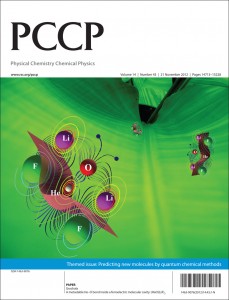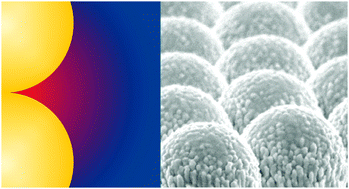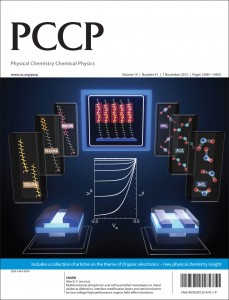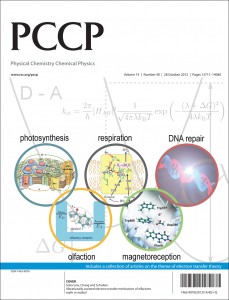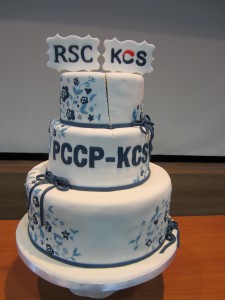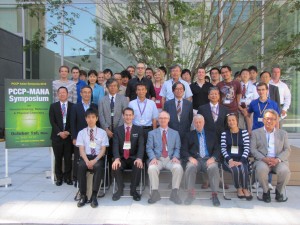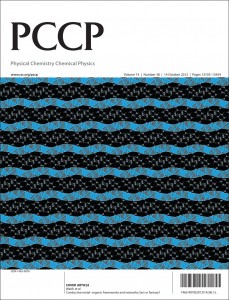 Physical Chemistry Chemical Physics (PCCP) Advisory Board member Professor Carlos Otero Arean (University of the Balearic Islands), has picked his favourite articles recently published in PCCP.
Physical Chemistry Chemical Physics (PCCP) Advisory Board member Professor Carlos Otero Arean (University of the Balearic Islands), has picked his favourite articles recently published in PCCP.
You can read these articles for free for a limited period by clicking on the links below.
Publishing work of the highest quality in the broad fields of physical chemistry, chemical physics and biophysical chemistry, PCCP is the ideal place to publish your research.
Be among the first to hear about the newest articles being published in PCCP – sign up to receive our free table of contents e-alerts.
On behalf of the Editorial Board we invite you to submit your best work to PCCP.
Read Professor Arean’s Editor’s choice selection today:
Perspectives
Ultrafast UV spectroscopy: from a local to a global view of dynamical processes in macromolecules
Andrea Cannizzo
DOI: 10.1039/C2CP40567A
Adsorption of DNA onto gold nanoparticles and graphene oxide: surface science and applications
Juewen Liu
DOI: 10.1039/C2CP41186E
Original research
Rapid calculation of protein chemical shifts using bond polarization theory and its application to protein structure refinement
Igor Jakovkin, Marco Klipfel, Claudia Muhle-Goll, Anne S. Ulrich, Burkhard Luy and Ulrich Sternberg
DOI: 10.1039/C2CP41726J
Theoretical studies of HIV-1 reverse transcriptase inhibition
Katarzyna Świderek, Sergio Martí and Vicent Moliner
DOI: 10.1039/C2CP40953D
Pore size distribution and capacitance in microporous carbons
Fritz Stoeckli and Teresa A. Centeno
DOI: 10.1039/C2CP41545C
Thin silica films on Ru(0001): monolayer, bilayer and three-dimensional networks of [SiO4] tetrahedra
Bing Yang, William E. Kaden, Xin Yu, Jorge Anibal Boscoboinik, Yulia Martynova, Leonid Lichtenstein, Markus Heyde, Martin Sterrer, Radosław Włodarczyk, Marek Sierka, Joachim Sauer, Shamil Shaikhutdinov and Hans-Joachim Freund
DOI: 10.1039/C2CP41355H
Cooperative effects at water–crystalline silica interfaces strengthen surface silanol hydrogen bonding. An ab initio molecular dynamics study
Federico Musso, Pierre Mignon, Piero Ugliengo and Mariona Sodupe
DOI: 10.1039/C2CP40756F
Enhanced stabilization of the Tobacco mosaic virus using protic ionic liquids
Nolene Byrne, Brendan Rodoni, Fiona Constable, Swapna Varghese and James H. Davis
DOI: 10.1039/C2CP41625E
You may also be interested in our PCCP web collection of articles on biophysics and biophysical chemistry and our recent themed issue on the theoretical chemical physics of biological systems – please take a look.
Comments Off on PCCP Editor’s choice: Professor Carlos Otero Arean
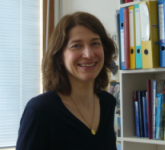 When asked about her favourite recent article in PCCP, Advisory Board member Professor Anne Zehnacker-Rentien of the Institut des Sciences Moléculaires d’Orsay chose “Effect of hydrogen-bonding on the excited-state reactivity of fullerene derivatives and its impact on the control of the emission polarisation from photopolic single crystals” by Guillaume Raffy, Debdas Ray, Cheng-Che Chu, André Del Guerzo and Dario M. Bassani.
When asked about her favourite recent article in PCCP, Advisory Board member Professor Anne Zehnacker-Rentien of the Institut des Sciences Moléculaires d’Orsay chose “Effect of hydrogen-bonding on the excited-state reactivity of fullerene derivatives and its impact on the control of the emission polarisation from photopolic single crystals” by Guillaume Raffy, Debdas Ray, Cheng-Che Chu, André Del Guerzo and Dario M. Bassani.










